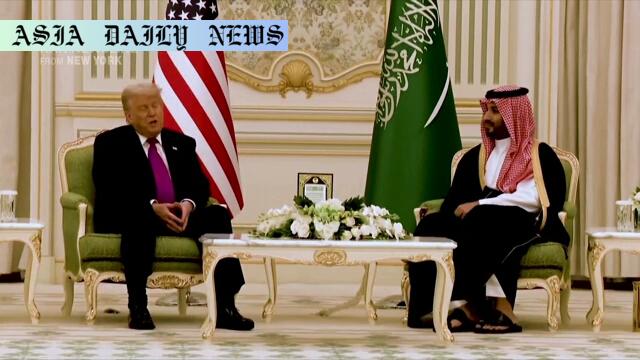Saudi investment drives $600B US partnership focusing on defense and infrastructure.
Saudi Arabia commits $600 billion for strategic US partnerships.
The deal includes $142 billion for arms purchases.
Advanced military technologies and modernization are key aspects.

Introduction: A Historic Saudi Investment
On his recent Middle Eastern diplomatic trip, US President Donald Trump celebrated the announcement of a monumental $600 billion investment agreement with Saudi Arabia. This decision marks a significant step in strengthening US-Saudi strategic partnerships. The terms of the deal cover various sectors, including defense, technology, and infrastructure, emphasizing both nations’ commitment to fostering enduring relationships and economic growth.
The Breakdown of the $600 Billion Investment
A pivotal aspect of the agreement includes an arms deal valued at $142 billion. This will involve Saudi Arabia purchasing state-of-the-art US-made weaponry such as fighter jets, missile defense systems, maritime security equipment, and military modernization tools. The arms sales consolidate Saudi Arabia’s efforts to secure its military superiority in the region, a move that aligns with the kingdom’s broader defense strategy. Additionally, this deal fortifies the US economy, ensuring critical jobs related to manufacturing and technology development remain intact.
The Strategic Advantages for Both Nations
For the United States, this deal strengthens its geopolitical alliances in the Middle East. The White House emphasized how the partnership contributes not only to defense cooperation but also to fostering bilateral economic growth. Saudi Arabia, on the other hand, secures the technological edge that enables them to maintain a commanding presence in a rapidly evolving Middle Eastern geopolitical theater. The Crown Prince’s ambition to modernize and diversify Saudi Arabia’s economy also stands to benefit significantly from this injection of advanced technology and expertise.
Diplomatic Impact on Regional Relationships
This pact reflects a broader realignment in Middle Eastern geopolitics. Trump’s plans to meet Syria’s interim president Ahmed al-Sharaa, followed by visits to Qatar and the United Arab Emirates, are indicative of the United States’ renewed commitment to fostering stability in the region. Saudi Arabia’s investment in US-made military systems further solidifies the alliance, sending clear signals to neighboring countries about the balance of power and economic cooperation initiatives.
Future Implications of the US-Saudi Deal
Although the agreement has garnered praise for its potential economic and defense-related benefits, some critics have expressed concerns over the ethical implications of such large-scale arms deals. Issues surrounding the impact of increased militarization in a volatile region must be carefully addressed. Furthermore, as the deal unfolds, transparency and accountability become critical to ensuring that mutual goals of security and economic prosperity are achieved without unintended consequences.



Commentary
Saudi Investment and its Implications for the Global Economy
The $600 billion committed by Saudi Arabia to enhance strategic partnerships with the United States marks a watershed moment in global economic relations. Such an ambitious investment doesn’t just emphasize the strength of US-Saudi ties but also paves the way for a transformative impact on both nations’ economies. It’s also a showcase of Saudi Arabia’s intent to bolster its regional and global influence through advanced military acquisitions and economic diversification.
Balance of Power in the Middle East
The allocation of $142 billion for arms purchases underlines Saudi Arabia’s dedication to maintaining its military edge in an increasingly complex Middle Eastern geopolitical environment. This focus on security and modernization poses both opportunities and significant challenges. While it strengthens existing alliances and elevates the kingdom’s defense capabilities, it also raises questions about arms proliferation in a region already prone to instability.
Economic Benefits and Ethical Considerations
On the economic front, this sizable deal is set to create jobs and foster innovation within the United States, especially in sectors like defense and advanced manufacturing. However, such agreements compel us to reflect on ethical considerations tied to arms sales, particularly in conflict-prone areas. As global players, nations have a responsibility to ensure that economic gains don’t come at the cost of humanitarian concerns.
Final Thoughts on US and Saudi Cooperation
Overall, the strategic and economic benefits of this $600 billion partnership could serve as a model for future international collaborations. However, these initiatives should aim to balance economic growth with global peace and security. It’s imperative that both nations remain committed to their shared goals while addressing the complexities of partnerships at this scale.